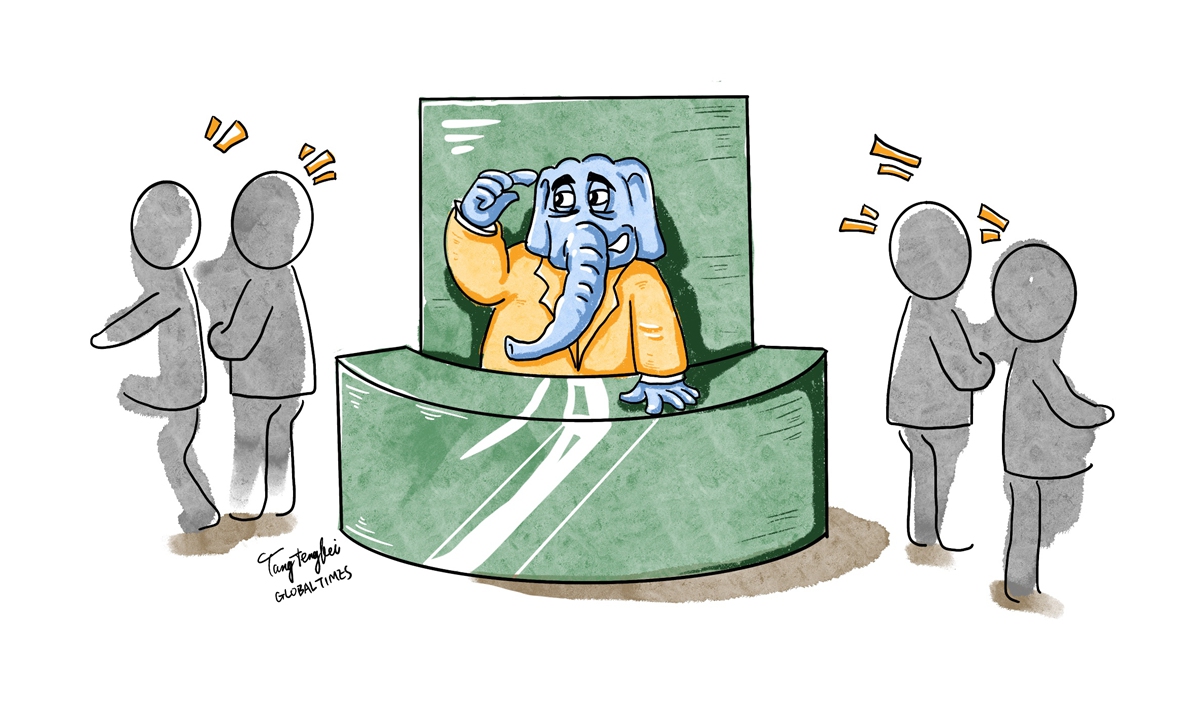
[ad_1]

Illustration: Tang Tengfei/GT
Echoing the US’ attempt to decouple from China, India has recently sought confrontation with China in economic fields. Luring industrial relocations from China is one of its major purposes. But India will be unable to fulfill “the lofty goal” for at least five to 10 years due to its insufficient capabilities.
Despite easing border tensions, India has not shown any willingness to stop hindering economic ties with China. Conversely, it prolonged clearance periods for cargo from China in June, and has banned 59 Chinese apps.
Negative impacts have emerged as international logistics giants FedEx and DHL have suspended shipment services between China and India. And the latest industrial reports revealed smartphone sales in India slumped 30-40 percent week-on-week in early July, due to supply disruption caused by Indian customs clearance delays, according to Indian media the Economic Times.
Under the framework of the US’ relentless bid to decouple from China, India’s recent move has raised risks for global industrial chains amid the coronavirus pandemic.
Though some Indian enterprises may welcome New Delhi’s decision to loosen connections with China so as to enjoy less market competition from overseas rivals, many Indian industries that have developed a high dependency on Chinese suppliers are facing risks of interrupted production.
Chinese supplies bound for India-based foreign manufacturers have reportedly also encountered clearance delays by Indian customs.
Shattering existing global industrial chains is unlikely to lure multinational companies to move from China to India. Though India has become a relatively larger economy now, the nation has endured unfavorable industrialization and has underdeveloped infrastructure, an unskilled labor force and an unfriendly land system for foreign investment.
Capital is essentially profit-oriented, seeking maximum returns at minimum costs. After assessing potential interests and costs, global investors are unlikely to find India to be an ideal investment destination.
Economic and trade cooperation between China and India had been increasing over the past decade due to strong economic complementarity, and China became India’s largest exporter, meaning Chinese products maintain high comparative advantages and are attractive to Indian consumers.
Going against economic principles and trying to seek substitutes for Chinese products will be fairly difficult for India.
And it will be particularly challenging as India now has world’s third-highest number of coronavirus infections. It has been reporting record-breaking numbers of daily cases. Containing the virus spread should be India’s most critical task now before the country could reboot its economic engine.
The author is the director of the Institute of Global Governance and Area Studies at Shenzhen University. bizopinion@globaltimes.com.cn
[ad_2]
Source link